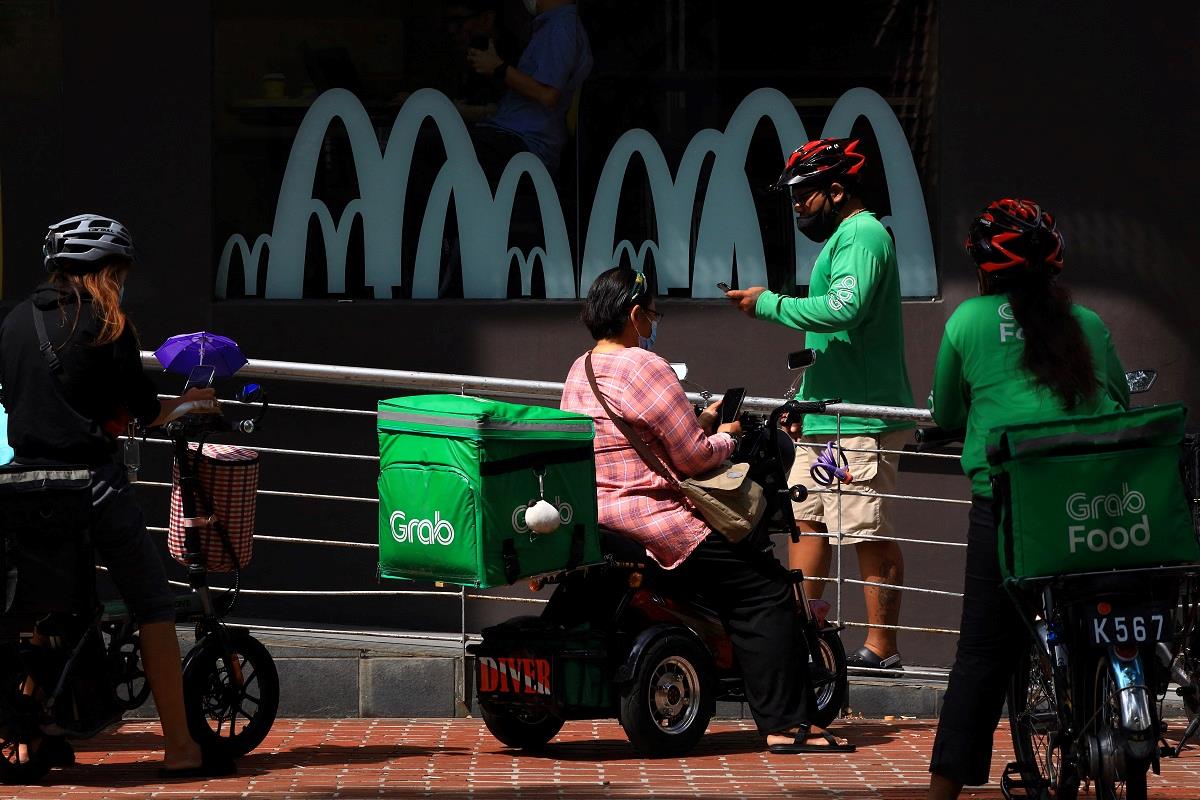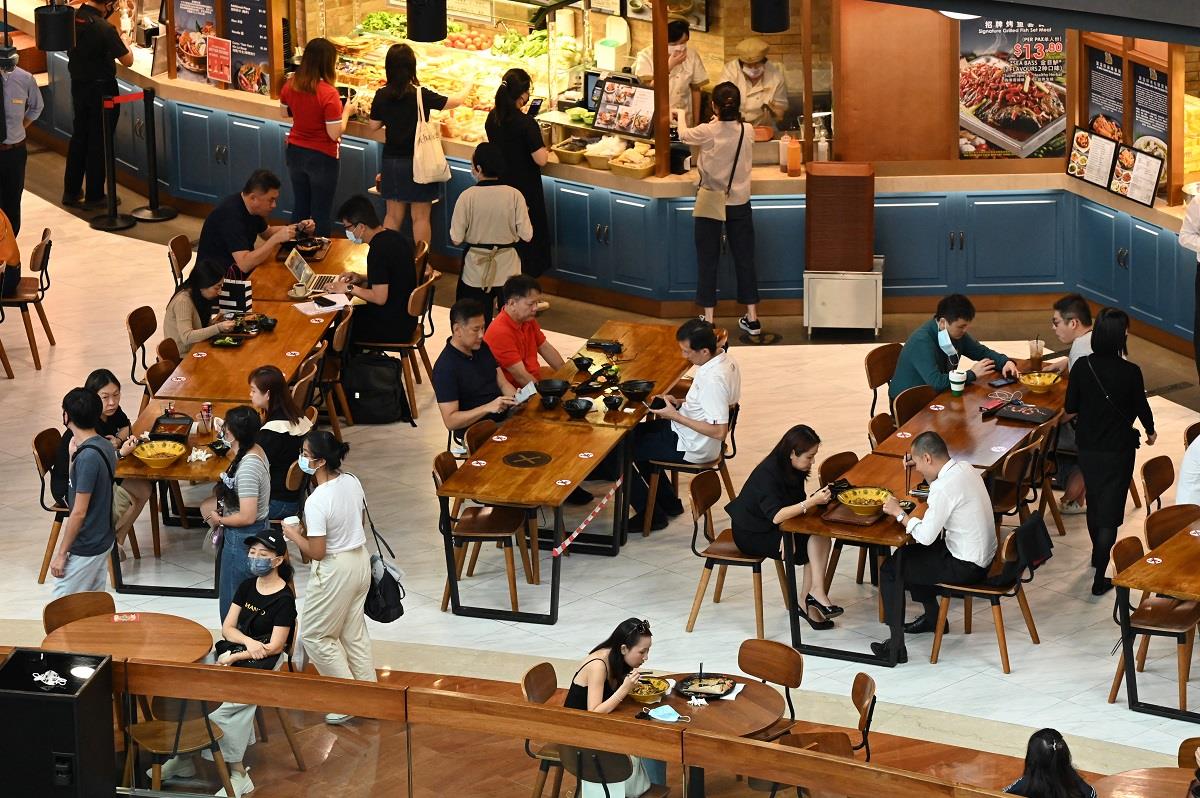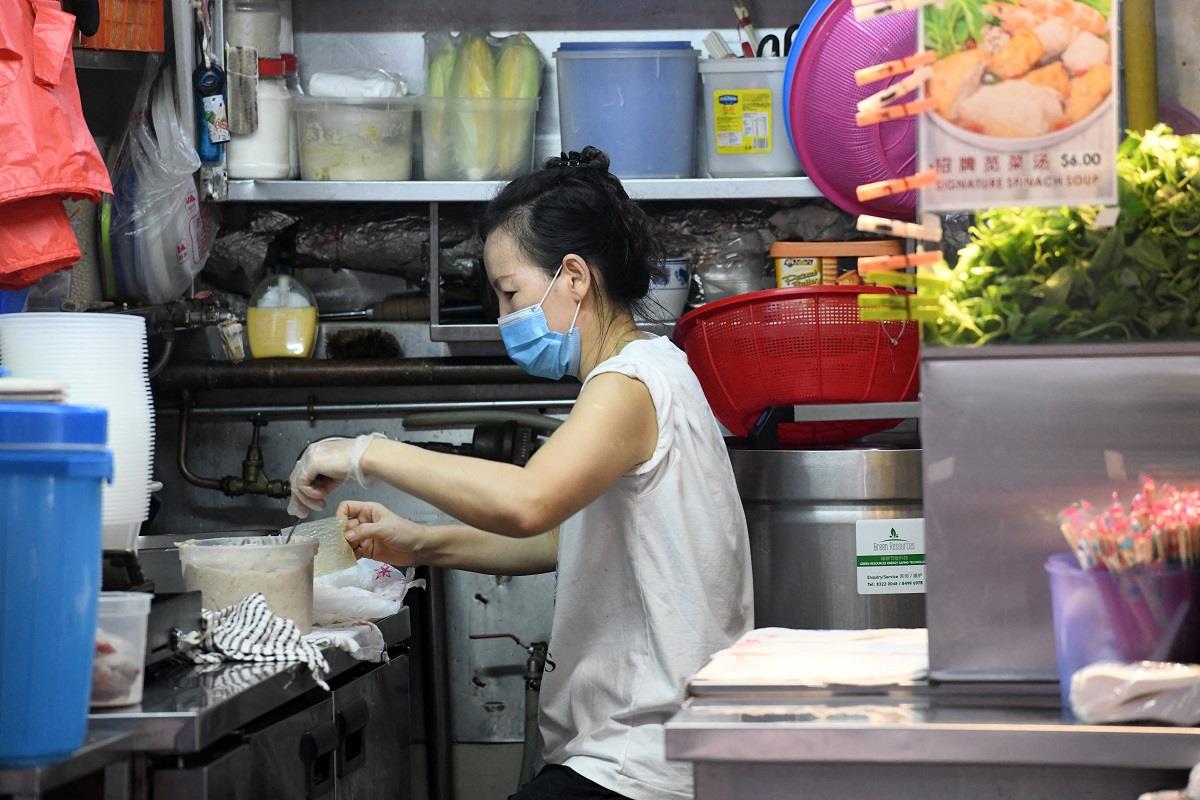(MENAFN- Asia Times) SINGAPORE – Food and beverage (F & B) businesses across Singapore are bearing the brunt of recently reinstated Covid-19 restrictions prohibiting customers from dining in, with many traders experiencing a steep fall in sales.
To survive, food hawkers and restaurateurs are embracing new strategies to adapt and gain an edge.
Bans on dining-in are not new for F & B businesses. The city-state's latest tightened measures took effect on July 22 after similar restrictions in May and June. Dine-in services were banned for two months during last year's strict“circuit breaker” period to curb rising cases.
Faced with yet another no-dining rule, F & B businesses are quickly turning to digital ordering systems in a bid to drive up sales.
“Covid-19 proved to be the catalyst for showing companies that digitalization, innovation and technology are absolutely necessary for survival, particularly in the F & B industry,” says Jay Teo, international director of iCHEF Singapore, a digital ordering service.
The new approaches enable businesses to cater effectively to consumer demands in a competitive market where the consumer is king, Teo says.
The F & B sector is still reeling from last year's economic downturn, reporting a year-on-year loss of nearly 30% at the end of the third quarter in 2020. Businesses that have stayed afloat have been quick to jump on technologies that some owners say are essential when dining in is banned.
Others, however, are more skeptical. Singapore's iconic hawker centers, recognized by UNESCO for their cultural significance, are purpose-built for in-person communal dining. But in light of recent restrictions, stallholders have tried to use digital services by partnering with food delivery services GrabFood and Foodpanda.
Some have seen mixed results.

GrabFood delivery riders wait outside a McDonald's restaurant on June 21, 2021. Photo: AFP / Suhaimi Abdullah / NurPhoto
Ban Jia Kitchen, a Chinese food stall at Empress Road Market and Food Centre, experienced a 50% drop in sales over the past few weeks and few deliveries.“We only receive about one or two orders for deliveries via the apps every two weeks,” the stall owner, who chose to remain anonymous, told Asia Times.
“And with the current price of the service we are paying, partnering with digital food delivery services is starting to become too expensive.”
Other stallholders also expressed frustration with shrinking profits due to charges that come with digital services on top of a drop in clientele of up to 70%, leading many to pull the plug on partnerships with delivery services, opting instead for in-person takeaway orders.
On the other end of the spectrum, major international food brands have found more success with digital offerings. At Swedish furniture retailer IKEA, its popular restaurant branch launched an online order service in early June allowing patrons to collect food at storefronts.
Jaap Doornbos, retail director for IKEA Singapore and the Philippines, said it has been“a real hit” with customers.“Since we launched, more than 6,000 customers have placed orders,” Doornbos told Asia Times.
According to data from consultancy Bain & Company, 30% of all local digital service consumers in Singapore last year were introduced to online services due to Covid-19, suggesting the significant consumer base available through food delivery platforms will be here to stay.
Despite challenges and fluctuations in regulations, many businesses have made daring ventures into the F & B sector amid the pandemic. There were at least 1132 new entrants to the industry last year despite waves of closures, according to local reports.
One such new business is Mr Mookata, a Thai barbecue outlet. Thai barbecue, known as mookata, and hotpot are typically prepared on a gas stove or grill at a customer's table.
During this period, Mr Mookata began offering rentals and free delivery of gas stoves and grills. Wang Yaying, Mr Mookata's owner, said most people were unfamiliar with mookata at home but the delivery offer has kept his business afloat.
“The delivery service has served us really well, as more and more customers have demonstrated interest in our product,” he told Asia Times.“It also enables us to get our staff to come into work even during this period, as we try to get them in as per normal so that they can continue to bring an income home.”

People dine at a restaurant in a shopping mall in Singapore on May 14, 2021, ahead of tightening restrictions over concerns of a rise in Covid-19 cases. Photo: AFP / Roslan Rahman
The F & B sector employs about 5.5% of Singapore's workforce and contributes about 1.1% of the country's gross domestic product (GDP). Data from May showed a 14.1% drop in F & B sales from the previous month, totaling S$617 million, though online delivery sales up were up 38.8% compared with 24.6% in April.
Wang said he opened his storefront in May, just 15 days before the no-dining rules took effect, forcing him to hard pivot to delivery-only offerings. Yet, delivery margins remain low as Wang has to factor in logistical costs.
“We had barely any time to prepare to go delivery-only. It has not been easy, nor is it money-making, but we are trying our best to sustain till the government allows for reopening,” he said.
In an op-ed for Business Times, iCHEF's Teo said digital models can help F & Bs cut costs, improve productivity and speed up sales but mindlessly adding technology would not save the industry.
“Businesses need to note what are the core elements of their businesses, how to deliver food and service effectively at scale, and what keeps customers coming back,” Teo said.
With more patrons turning to food delivery services, businesses have begun venturing into“cloud brands” in which a restaurant operator diversifies the menu into multiple online delivery-only restaurant“brands”, with all the dishes prepared in the same kitchen.
Chua Ee Chien, owner of cocktail bar Jeykll and Hyde, has worked towards diversifying his services in this way, introducing delivery-only branded food options to stay afloat.“One of the cloud brands from our kitchen, 'Curry Fried Chicken', helped us to go from red to minimally in the black,” he told Asia Times.
He began testing cloud branding after a 75% drop in sales when no-dining rules were reimposed in May. Since then, he has teamed up with other F & Bs to offer unique menu items and has launched two other cloud brands offering dumplings and fresh oysters.

Wage subsidies have helped workers to survive but these are due to wind down. Photo: AFP / Roslan Rahman
Jeremy Chiam, head chef and co-founder of modern Japanese gastrobar IKO, said he has used the opportunity of the pandemic to re-market existing products for delivery and adopt a“loss leader” pricing strategy, where a product is sold at a price below its market cost to stimulate sales of more profitable offerings.
“I am looking to win the war, not a battle,” Chiam told Asia Times.“Our price point might be considered to be on the mid-to-high-range. As such, the key to survival is to offer more affordable comfort food.”
Authorities in Singapore announced relief measures for F & B operators and hawker center stallholders last month with a S$1.1 billion support package that includes wage subsidies up of up to 60% for the sector, as well as for other hard-hit businesses such as gyms and performing arts organizations that have been largely barred from operating due to Covid-19.
But the wage subsidies will be tapered from between 60% and 40% down to 10% from August 18, when the current no-dining measures are set to be lifted. That has prompted representatives from the F & B industry to call on the government to extend further help.
Singapore is slated to review its Covid-19 restrictions in early August, and authorities have raised the possibility of easing some measures to allow dining-in by people who are fully vaccinated. More than 57% of Singaporeans have so far been fully vaccinated.
Regardless of the turbulence in cases or restrictions, the show must go on, said Chiam, who is hopeful that business will resume in full force by August 18.
“With more of the population being vaccinated, and if the government allows five-person dining in like before, it would be a great start for us to see a full house almost every day again,” he said.
MENAFN03082021000159011032ID1102560365